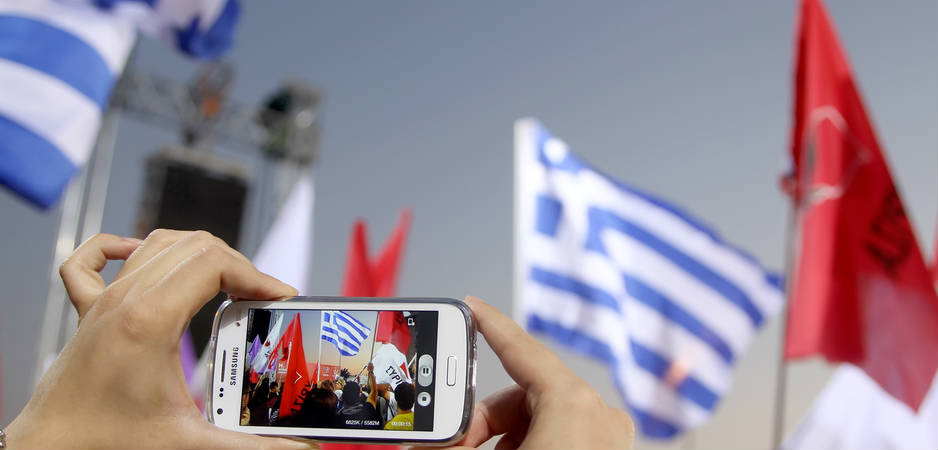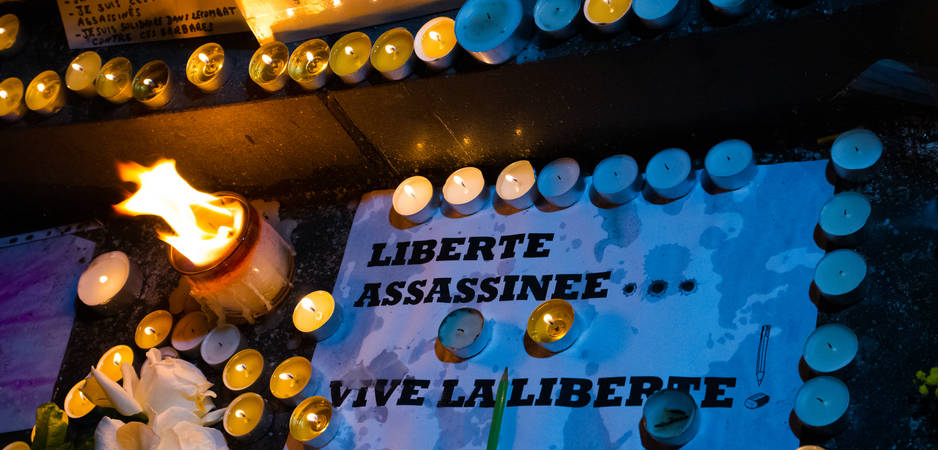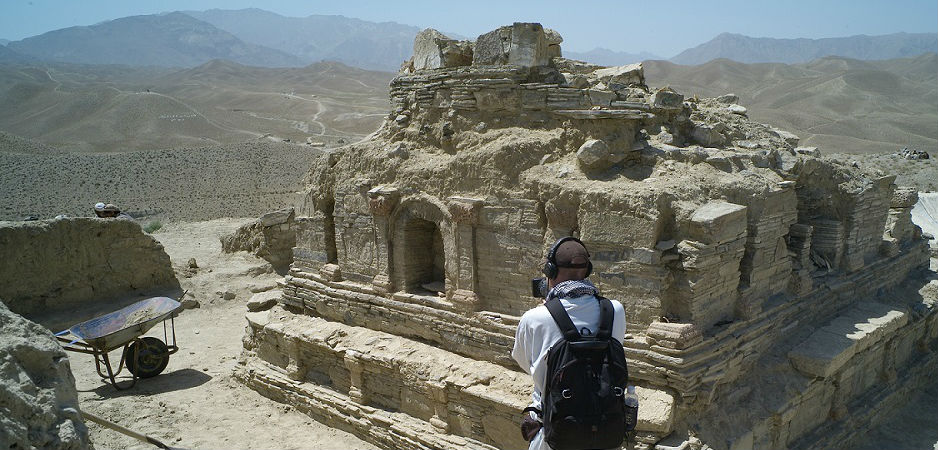Syriza, a left-wing party, won the Greek elections and has refused to negotiate with the “troika” team in Europe.
This January kicked off 2015 with a bang. The world economy is sputtering. Slowing growth, fewer jobs and increasing inequality are concerns across the globe.
The entire euro project is in question. The Swiss have already decided to no longer peg their franc to the euro. They don’t want the risk of inflation or, more importantly, asset market bubbles that will inevitably arise as the ECB’s quantitative easing (QE) program gathers steam.
The reason for QE is the deflation that is gathering pace across 19 countries in the eurozone. This is largely caused by falling energy prices that dropped by 8.9% in January. Normally, this would be good news. However, eurozone countries are deep in debt. Falling prices mean less revenue for governments, increasing the burden of repayments. Real interest rates have gone up, and the ECB felt compelled to fire its final bullet in the form of QE.
What QE means is that the ECB will buy both government and private bonds. In doing so, it might create over a trillion euros of new money. By increasing the supply of euros, the ECB will cause devaluation. A cheaper euro is expected to help eurozone exporters, increasing employment and confidence. Increased money supply will also cause a fall in interest rates. This might increase spending and stimulate the economy.
To add a twist to the tale, Syriza, a left-wing party, has won the Greek elections. It has refused to negotiate with the “troika” team from the European Commission (EC), the European Central Bank (ECB) and the International Monetary Fund (IMF). The troika wants Greece to carry on as if it’s business as usual. In 2010, the troika imposed tough conditions on Greece in return for a €240 billion bailout. The economy has since shrunk by 25%. Unemployment is 25% and youth employment is 50%. That is why Syriza won.
Economic woes are plaguing Asia and Latin America as well. The Korean economy grew by a measly 0.4% last quarter. China’s manufacturing sector contracted for the second consecutive month. The Chinese economy grew by 7.4% in 2014, the lowest figure in 24 years. As Chinese demand falls, economies of Latin America that export soybeans, copper, beef et al to the Middle Kingdom are not doing too well either.
Islamist terrorists attacked Charlie Hebdo, a French satirical magazine renowned for its biting wit and its scathing cartoons. The bloody attacks led to 17 deaths. Meanwhile, the French staged a unity march to protest extremism — it attracted millions. Many commentators observed that the street gatherings were the largest in Paris since the liberation of Paris from Nazi Germany in 1944. With claims that al-Qaeda and the Islamic State orchestrated the attacks, the Middle East’s war is knocking at Europe’s door. Fair Observer published a 360° series to analyze the events.
The United States is forging new friendships with Cuba and India. With Cuba, a historic rapprochement is underway. It has potential to reconcile relations all across the Americas. Similarly, the US is breaking new ground with India. US President Barack Obama became the first American president to visit India twice and the first to be a guest for the country’s Republic Day celebrations. Indian Prime Minister Narendra Modi was until recently deemed ineligible for a US visa. Now, thanks to China, Modi is Obama’s new best friend.
Boko Haram killed more than 2,000 people in Nigeria at the same time as the carnage in Paris.
It razed 16 towns and villages in Borno state. Earlier, it had captured the town of Baga and the headquarters of the Multinational Joint Task Force (MNJTF), which is made of troops from Nigeria, Niger and Chad.
In Pakistan, an attack on a Shiite mosque killed 49 people and wounded many others. The Sunni radicalization of the country is increasing dramatically.
Meanwhile, Hezbollah and Israel have had another spat. After the Israelis killed six Hezbollah fighters and an Iranian general in Syria on January 18, Hezbollah ambushed an Israeli convoy, killing two soldiers and wounding others. Hezbollah claims that the assault is a warning to Israel that it will pay a price for military attacks on its neighbors.
Finally, Saudi King Abdullah bin Abdulaziz died at the ripe old age of 90. Salman, Abdullah’s half-brother, has taken over a kingdom that exports oil, buys dollars and promotes Wahhabi Islam. To its south, the US-backed government in Yemen has just collapsed and, to its north, the Islamic State is growing in power. The Saudis are caught in a bind.
As always, we invite you to send us articles, videos, infographics, cartoons and more. Click here to become a contributor. Meanwhile, please find below our finest articles for January.
[seperator style=”style1″]1: Watching American Sniper With Iraqis[/seperator]
How would Americans react to occupation by a foreign army?The controversy surrounding the film American Sniper should come as no surprise. We live in an age that is desperately complex, yet we continue to reduce every issue to the simplest of characterizations — most of which are almost always taken out of context. The entrenchment of opinion on either side of this movie has become all too typical of our cultural myopia, which seeks to pass judgment on things we do not truly understand. Read More
[seperator style=”style1″]2: Excuse Me, Why is Jesus White?[/seperator]
Jesus should look more Palestinian and less European to stop symbolizing the supremacy of the white man.
As a child, I attended Christian schools. These institutions taught students well. Teachers were tough but cared. I remember one Mrs. Lobo constantly trying to get me to study. Both she and my mother were frequently upset because I would bunk class and run off to play. Once I left an exam halfway through because I was bored. Both Mrs. Lobo and… Read More
[seperator style=”style1″]3: Why I Am Not Charlie[/seperator]
Scott Long supports free speech, opposes all censors, abhors the killings and mourns the dead, but he isn’t Charlie.
There is no “but” about what happened at Charlie Hebdo on January 7. Some people published some cartoons, and some other people killed them for it. Words and pictures can be beautiful or vile, pleasing or enraging, inspiring or offensive; but they exist on a different plane from physical violence, whether you want to call that plane spirit or imagination… Read More
[seperator style=”style1″]4: Saving Mes Aynak, Revisited[/seperator]
Mes Aynak, one of Afghanistan’s most important cultural treasures, may be destroyed by the end of 2015.
My documentary, Saving Mes Aynak, which deals with the imminent threat facing the ancient city of Mes Aynak in Afghanistan, will have its premiere at the prestigious Festival International de Programmes Audiovisuels (FIPA) in France at the end of January. The event rarely accepts films made by American directors, and the film… Read More
[seperator style=”style1″]5: Does the Islamic State Pose a Threat to Morocco and Jordan?[/seperator]
The continued existence and potential expansion of the Islamic State undermines the legitimacy of the Middle East’s constitutional monarchies.
The Middle East and North Africa‘s constitutional monarchies are surviving the upheaval of the Arab Spring. Morocco and Jordan, two key US allies in the region, are popularly billed as constitutional monarchies. The two kingdoms are generally regarded as “islands of stability” in… Read More
Fair Observer is a nonprofit organization dedicated to informing and educating global citizens about the critical issues of our time. Please donate to keep us going.
The views expressed in this article are the author’s own and do not necessarily reflect Fair Observer’s editorial policy.
Photo Credit: Ververidis Vasilis / Niyazz / Shutterstock.com
Support Fair Observer
We rely on your support for our independence, diversity and quality.
For more than 10 years, Fair Observer has been free, fair and independent. No billionaire owns us, no advertisers control us. We are a reader-supported nonprofit. Unlike many other publications, we keep our content free for readers regardless of where they live or whether they can afford to pay. We have no paywalls and no ads.
In the post-truth era of fake news, echo chambers and filter bubbles, we publish a plurality of perspectives from around the world. Anyone can publish with us, but everyone goes through a rigorous editorial process. So, you get fact-checked, well-reasoned content instead of noise.
We publish 2,500+ voices from 90+ countries. We also conduct education and training programs
on subjects ranging from digital media and journalism to writing and critical thinking. This
doesn’t come cheap. Servers, editors, trainers and web developers cost
money.
Please consider supporting us on a regular basis as a recurring donor or a
sustaining member.
Will you support FO’s journalism?
We rely on your support for our independence, diversity and quality.




![American Sniper - Official Trailer 2 [HD]](https://www.fairobserver.com/wp-content/uploads/2015/01/American-Sniper-Official-Trailer-2-HD.jpg)





Comment